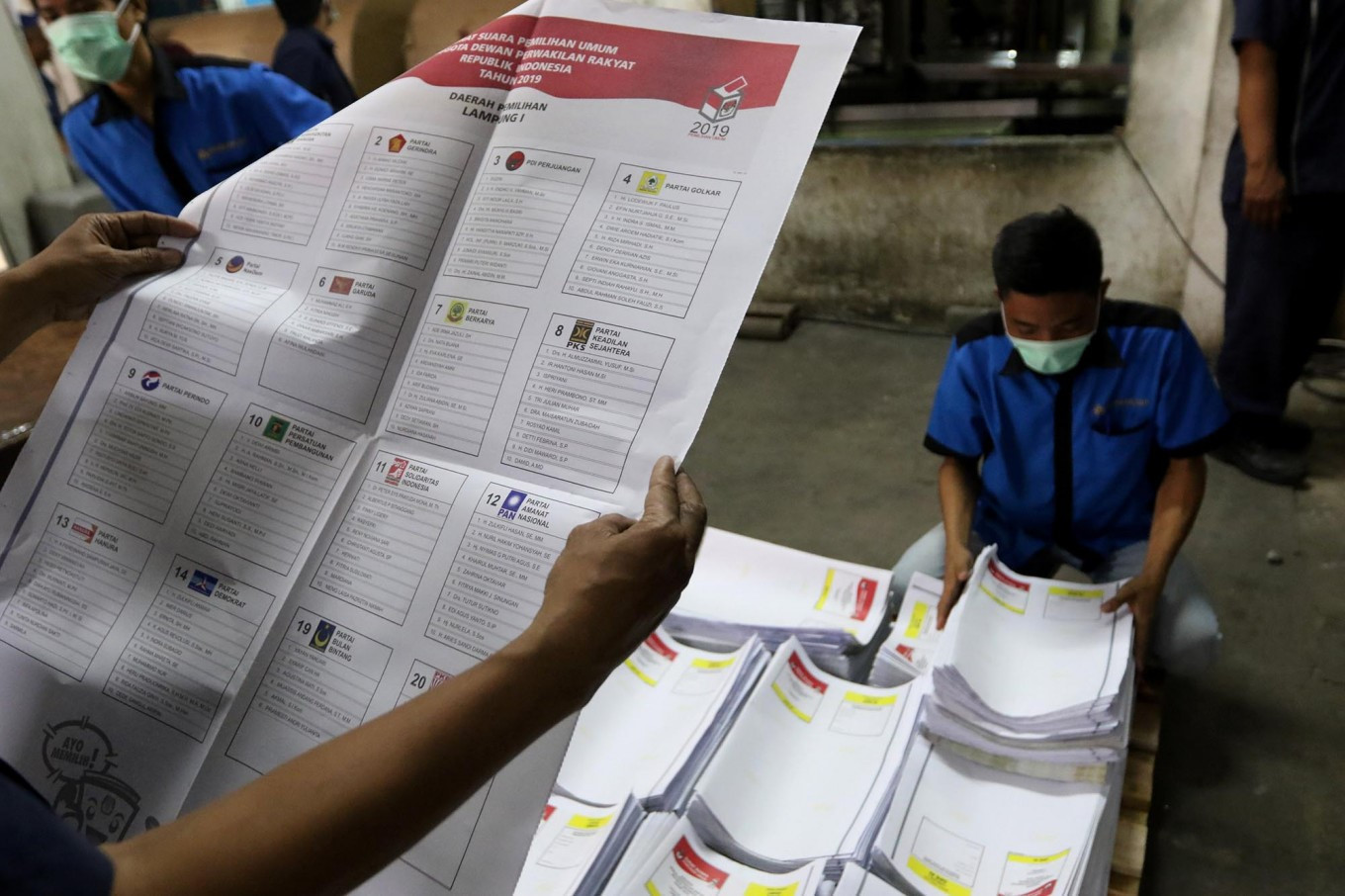News
Indonesia's election debate: A step backward?
Tenggara Strategics August 4, 2025 Staffs are folding the ballot papers. (JP/Dhoni Setiawan)
Staffs are folding the ballot papers. (JP/Dhoni Setiawan)
Indonesia's political elite are once again pushing to alter the system for regional head elections (Pilkada), currently conducted through direct public voting. The proposed changes aim to shift the authority to elect local leaders back to regional legislative councils (DPRD) or even allow for direct presidential appointments. However, these discussions appear less like well-reasoned policy debates and more like atempts to gauge public reaction.
Muhaimin Iskandar , chairman of the National Awakening Party (PKB), has suggested two alternative models: Governors would be appointed by the central government, while regents and mayors would be elected by the DPRD.
Previously, in December 2024, Golkar Party chairman Bahlil Lahadalia had already floated the idea of eliminating direct local elections as part of a broader democratic reform effort through amendments to political laws. Bahlil argued that direct elections incur high political costs and frequently ignite horizontal conflicts within communities.
President Prabowo Subianto has also welcomed the idea, suggesting that local leaders should be chosen by the legislature instead of directly by the people. This sentiment follows the concurrent local elections in 2024, which cost the state budget approximately Rp 37 trillion (US$2.24 billion).
Despite these claims, the political elite's evaluation of the advantages and disadvantages of direct Pilkada seems to lack a solid foundation, especially concerning the development of effective electoral mechanisms and addressing money politics.
On one hand, direct elections do compel candidates to bear significant political expenses, raising concerns that elected officials might engage in corrupt practices to recoup their financial outlays. On the other hand, while electing regional heads through the DPRD is perceived to be less costly, it still necessitates funds for lobbying DPRD members. Essentially, shifting from direct elections to DPRD-based elections risks merely transforming money politics into transactional politics.
If direct elections are indeed vulnerable to money politics, the government and the House of Representatives should prioritize developing mechanisms to mitigate these risks rather than entirely scrapping the system and reverting authority to the DPRD.
The direct election of regional heads is mandated by Law No. 10/2016 on Regional Elections. Therefore, any change to the current election mechanism would require a formal amendment to this law by both the government and the House.
Rifqinizamy, chair of the House’s Commission II overseeing electoral affairs, proposed a middle-ground solution adhering to existing laws: The President could nominate gubernatorial candidates for approval by the provincial DPRD.
Melchias Marcus Mekeng, chair of Golkar’s faction at the People’s Consultative Assembly, expressed a preference for the DPRD-based system, drawing parallels to the era of Indonesia’s second president, Soeharto. He argued that direct elections haven't necessarily translated into greater regional development, noting that many regions still rely heavily on central government funding and that locally elected leaders often lack the creativity to lead effectively.
Meanwhile, Home Minister Tito Karnavian cited Article 18B, Paragraph 4 of the 1945 Constitution, which mandates that governors, mayors and regents must be elected democratically. He interpreted this to mean that elections do not necessarily have to be direct and can also be conducted through representative bodies like the DPRD.
However, Titi Anggraini, a constitutional law lecturer at the University of Indonesia, emphasized that the option of electing regional leaders through the DPRD is no longer valid following Constitutional Court Decision No. 135/PUU-XXII/2024. This ruling, she explained, affirmed that regional elections must be conducted simultaneously with legislative elections, thereby implying that direct elections should be maintained.
The current system of direct regional elections has a compelling history. The 2014-2019 House of Representatives initially enacted Law No. 22/2014, which placed the responsibility for electing governors, regents and mayors in the hands of the DPRD. However, this sparked widespread opposition from civil society organizations.
Responding to the political urgency of the time, then-president Susilo Bambang Yudhoyono issued Government Regulation in Lieu of Law (Perppu) No. 1/2014, which reinstated direct elections. Yudhoyono notably emphasized that direct elections were a product of the reform movement, much like his own two terms as president, which were also secured through direct popular votes.
Once again, the short-sighted political elite of the country have put electoral democracy to the test.
What we've heard
A member of the House of Representatives’ Commission II said reinstatement of indirect regional head elections through DPRDs was the wish of President Prabowo. According to this lawmaker, Prabowo has repeatedly floated this idea to members of the ruling coalition, citing the rising cost of political campaigns.

